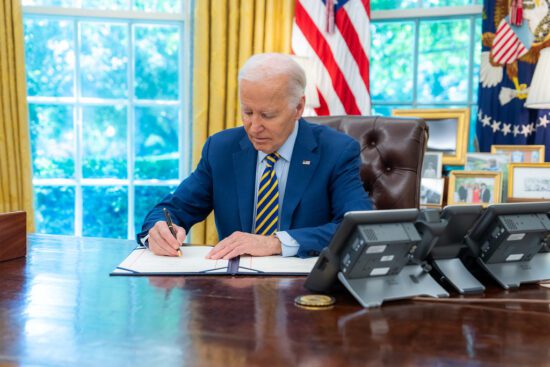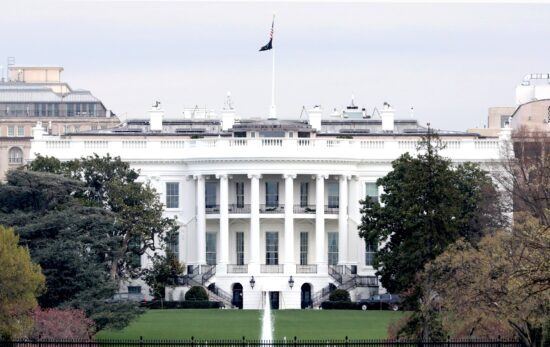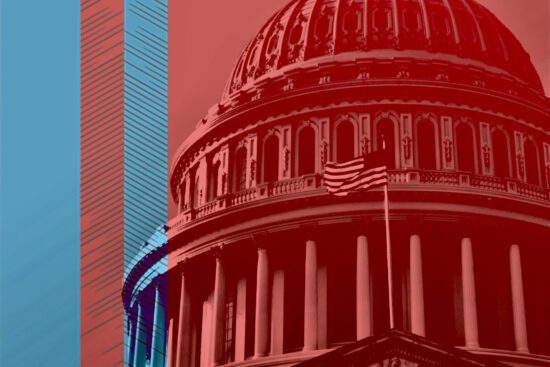This piece was written as an op-ed published at Religion News Service.
(RNS) — In 1856, amid cultural debates about the morality of enslaving fellow humans, the abhorrent, dehumanizing treatment of Black Americans and the ability of states to pursue their own paths on slavery, the Republican Party was born. This political project was launched to not only halt the spread of slavery in a growing nation but to ensure that no person be denied the “inalienable right to life, liberty, and the pursuit of happiness.”
Four years later, framers of the new party’s platform wrote that slavery is “at variance with the explicit provisions” of the Constitution and went on to denounce the slave trade as a “crime against humanity and a burning shame to our country.”
The moral clarity with which the party’s founders spoke about slavery was critical in leading the nation through the grueling years of civil war and the ultimate abolition of the practice.
The GOP’s moral roadmap is important to note: They named the evil around them. They urged lawmakers and citizens alike to acknowledge and change inhumane policies and behaviors. Finally, they called on the “better angels” of all Americans, in the words of the first Republican president, challenging them to live up to the founding principles that had birthed the nation.
By advocating for the freedom of a population so many wanted to denigrate, the Republican Party ended up unshackling a nation from a sin that had ensnared it from its earliest days.
It is this rich history — the GOP’s roots in liberty — that makes recent news about the forthcoming 2024 Republican Party platform so utterly dispiriting for those of us who have committed years of our lives to the fight for freedom for the most vulnerable population in our modern context: pre-born children. We are hearing reports about potential changes to the platform, including its historic support for a pro-life constitutional amendment.
It has been eight years since the Republican Party produced a new platform. Since then the entire landscape of the abortion issue has changed. An update to the platform is both appropriate and necessary in this new context, and merely copying and pasting boilerplate language from the Roe v. Wade era would be a mistake.
But instead of embracing this time of change as an opportunity to promote a culture of life, many voices in the GOP appear to have concluded that the cause of freedom is too politically fraught at this time and prefer to run from a defense of the sanctity of life altogether. Lincoln would shudder to see it.
With the Dobbs decision that overturned Roe, the U.S. Supreme Court tore down the national legal scaffolding that held up the abortion industry’s systematic destruction of pre-born lives. For 50 years, vulnerable mothers and anxious fathers had been preyed upon by the likes of Planned Parenthood and other entities that not only profited from the annihilation of innocent life but worked their way into the cultural fabric of our country and convinced millions that new life can be inconvenient and therefore disposable.
To abandon the party’s pro-life commitments just as the abortion regime has been knocked on its heels would be nothing short of political malpractice. Moreover, it reveals a misunderstanding about the current cultural and political moment, a moment both the Republican Party and Democratic Party would do well to study.
As I have written to both parties elsewhere, the right to life is a fundamental, pre-political, self-evident right bestowed by our creator on every individual from the moment of conception. Our government is given the unique responsibility by God to protect that most fundamental right. At the national level, both parties should show how they are organizing themselves based on this truth.
Yes, in light of the Supreme Court’s decision, states are once again empowered to act on abortion, but the justices did not take away the ability of the federal government to protect life.
Now more than ever is the time to advocate for a robust vision for life. Policymakers should craft proposals that reflect this nation’s founding ideals and ensure freedom for those who truly have no voice. This true culture of life would usher in an era when pre-born lives are saved, vulnerable mothers are shielded from the predatory abortion industry, and fledgling families are supported at both the federal and state level.
Brent Leatherwood
Read the full Religion News Service op-ed here.










